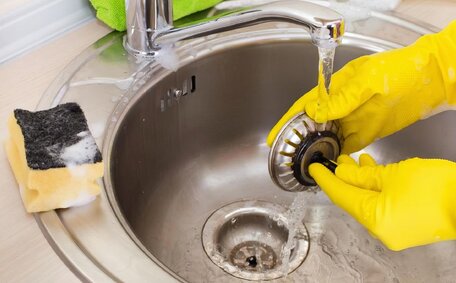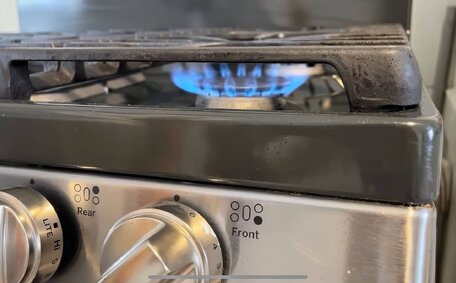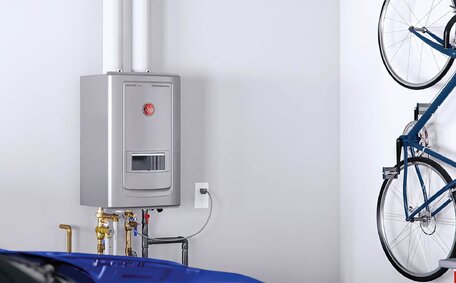Identifying If You Have a Leaking Water Heater
There are a few key signs that may indicate your water heaters are leaking. The most obvious is visible water pooling around the base of the unit. You may also notice fluctuations in your hot water, signifying your leaking water, going from pleasant warmth to an unexpected jolt of cold water. The most obvious is visible water pooling around the base of the unit.
This indicates a potential water leak, signaling that water is escaping the tank.
Inspect for a leak by checking the pipe fittings and examining the water heater from all sides, with particular focus on the top and bottom of the unit. If you have a gas heater, use a solution of soapy water near pipe joints and valves to check for bubbles that would reveal your leaking gas.
Check where pipes connect to the heater at both the top and bottom for any signs of moisture or minor leaking. See if the floor feels wet. Examine the exterior for rust-coloured stains or mineral deposits that can form from water leaks.
Listen for unusual sounds from the tank during use, as this could suggest a leak in the hot water system. If you discover a leaking hot water issue, limited hot water or other troubling signs like high water marks, contact a professional to diagnose and fix the leak in your tank without delay.
Also monitor your water bill to assess how much water might be leaking from your hot water heater over time.
Determining the Severity of the Leak
The urgency of addressing a water heater leak hinges on the leak’s location and volume, and whether the unit must be turned off to avoid additional damage. A hot water system leaking from critical components such as the TP valve might indicate unsafe water pressure accumulation needing swift action. However, not every instance of a water system leaking calls for immediate emergency services.
Inspect the regions where a system leaking could suggest a more severe issue is at hand. A leak near electrical parts poses a shocking hazard.
One leak from a gas water heater can slowly deplete your water can contents, which might hike up energy costs progressively, though not always requiring immediate attention. Check floors and walls under the unit for signs of severe, prolonged leakage versus new isolated dripping.
Also evaluate amounts water flow volume present in the vicinity. Small amounts of leaking can also be patchily weeping and could wait for an appointment. Remain watchful for small amounts water leaking that could escalate, potentially upsetting your hot water supply and tranquility.
A leak resulting in significant puddles or streaming water from the heater tank demands immediate action to prevent further damage or perilous pressure levels if overlooked.
Even minimal drips can lead to water damage; thus, having a hot water system leak evaluated by a professional quickly is essential. Any amount of escaping water heater can lead to mould or instability over time. Plus, Catching minor leaks early, particularly those exacerbated by hard water, often means less expensive repairs.
Taking Immediate Action to Limit Damage
Upon noticing a leak, swiftly shut off water using the cold water supply valve tap lever when water heater tank integrity is compromised to curtail damage.
First, find the main shut off valve for your home’s water supply and turn it off. Shutting off the water supply will prevent more water from getting into the tank, thus mitigating the risk of flooding. Be prepared with buckets and towels to catch any remaining water that may leak out after this.
This shutoff is typically located near the water mains in your house to easily cut off any water supply when needed.
Turn off power to your gas hot water heater at the circuit breaker if it’s an electric hot model, or turn the gas valve to “closed” for gas models. This eliminates electrical and burn risks. Confirm that any pilots are turned off.
Drain the storage tank by connecting a garden hose to the drain valve at the base and directing the water to a suitable drain. Twist open the pressure relief valve top to admit air, thus permitting water to exit until the tank is semi-drained. Draining the tank eases pressure on the affected parts, setting the stage for repairs or replacement.
Also, turn off the power supply at the main breaker panel if water has come into contact with any electrical fixtures. Prevent shocks and shorts.
Mitigate water spillage by covering the area with a tarp.
Place buckets, pans and towels around and under leak points. Divert water away from possessions and structure.
Contact a professional plumber immediately to inspect and address any issues causing your water system to leak. Dont worry if a leak is detected early; the sooner a leaking water unit is tended, the less likely it is that significant damage will ensue.
Knowing When Professional Help is Needed
Calling a professional plumber is essential if you discover a major leak that could leak your hot water or have an older unit nearing the end of its lifespan.
Our skilled technicians at Pennant Hills Plumbing possess the know-how to aptly evaluate the condition of hot water tanks and their concomitant issues. We can troubleshoot faults, perform necessary repairs or supply and install a new hot water system if needed.
Signs your water heater requires urgent professional assistance include when water is visibly pooling around the base:
- Visible pooling around the base, signalling potential issues with the heater’s integrity
- Leaking from safety valves like the T&P relief valve
- Dripping appearing in multiple locations
- Significant water flow, as opposed to minor seepage
- Loss of all hot water supply
- Loud noises, rumbles or bursts that can cause concern
- Rust accumulation and corrosion
- Floor and wall damage from chronic escaping water
- Soot building up from burner issues (gas heaters)
- Fluctuating hot water availability
- Rapid cycling on and off
- Foul odours
Our experienced Pennant Hills Plumbing team can quickly determine the cause of your system’s leak and resolve it through repairs or replacement. Contact us at 1300 349 338 or [email protected] for assistance determining if your water heater requires emergency service, maintenance or replacement.
Water Heater Repair vs Replacement
When faced with issues, determining whether a hot water system can be repaired or should be replaced is a key question. Your hot water system typically lasts 8-12 years, so age is a factor. If your hot water systems are nearing or past their lifespan, replacement may be the best option.
Certain situations, like minor tank leaks, do warrant attempting repair first:
- Unit is less than 5-7 years old with no leak coming from the unit
- Previous repairs have been minimal
- Damage is limited to isolated parts like valves or anodes
- No leaks from the internal tank itself
- Water heater still reliably provides hot water but has problems like sediment buildup
Replacement becomes the main recommendation when an anode rod inspection shows extensive deterioration:
- Water heater is over 10 years old
- Frequent costly repairs have piled up over a short period
- There are leaks from multiple locations, including the inner tank
- Unit completely fails to heat water
- Extensive corrosion, rust or mineral accumulation is present
- Upgrading to a newer, more energy efficient model like solar hot water units is preferred
The amount of related damage to the hot water tank is also important. For minor leaks caught early in your hot water unit that haven’t led to hot water heater leaking concerns or property damage, repairs may suffice. But major flooding requiring lots of drywall/flooring work merits replacement.
In the end, have a licenced plumber assess your situation to determine if replacement or repair of your water heater is truly the right solution. Contact our team at Pennant Hills Plumbing today at 1300 349 338 for professional assistance.
Regular maintenance reduces the risk of leaks
One of the best ways to avoid hot water heater leaks or failures is through regular proactive maintenance. Our expert technicians at Pennant Hills Plumbing perform comprehensive servicing and inspections biennially to prevent small issues from escalating.
Preventative care from a professional typically includes:
- Draining and flushing the tank
- Inspecting anodes and replacing them as needed to reduce corrosion
- Testing for leaks
- Checking safety valves
- Verifying proper water temperature and pressure
- Cleaning parts like heating elements or burners
- Checking all gas and electrical connections
Regular maintenance prolongs your system’s lifespan and enhances its reliability and efficiency. It also minimises the likelihood of leaks by detecting minor issues before they lead to failure or significant tank damage due to mineral deposits or sediment.
Spending $150-250 yearly on preventive plumbing measures can save you substantial costs in emergency leak repairs and replacements over time. Contact our team at 1300 349 338 to discuss tailoring a proactive maintenance plan for your home’s water heating needs.






